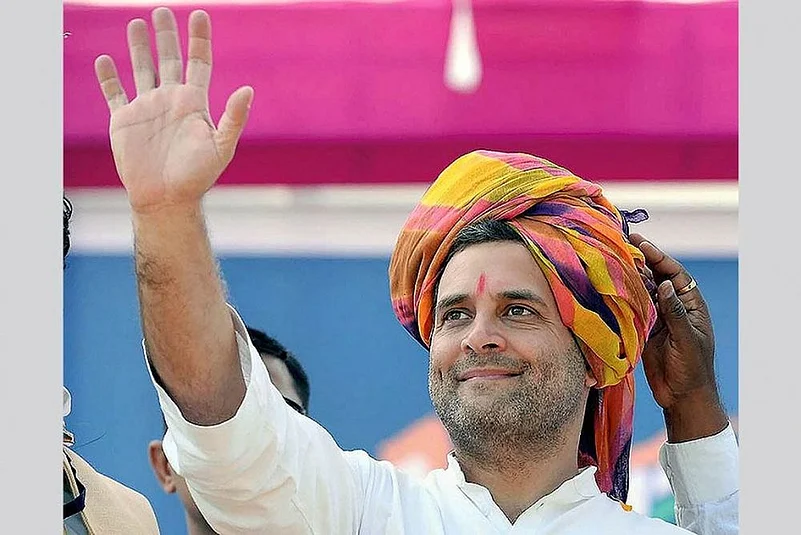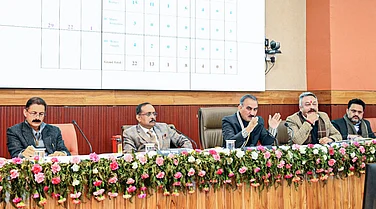After ending prolonged suspense, Rahul Gandhi has finally become the 49th President of the 132 years old Congress party of India, following the footsteps of his great-great-grandfather, great grandfather, grandmother, father and mother. Nehru-Gandhi family has not only been in control of the Congress Party for the last 70 years, it has also dominated Indian politics in post-independent period. So, Rahul Gandhi’s election as the President of the Congress Party is not very surprising.
However, to understand the timing of Rahul Gandhi’s decision to take up the task is extremely important. If he had interest for power, Rahul Gandhi would have not only become the President of the Congress Party much before, but he could have also become the Prime Minister of the country in 2009. But, in spite of repeated demands from a large section of the party, he had decided to wait for his time.
So, it is important to understand why Rahul Gandhi’s decision to be the President of the Congress Party now and why not before. These days, the Congress Party is not only out of power at the center, but it is passing through a survival crisis as it has lost power even almost in all the big states in India. In less than two weeks, as media has predicted the Congress Party is most likely going to lose the assembly election again in Prime Minister Narendra Narendra Modi and BJP President Amit Shah’s home state Gujarat, where Rahul Gandhi is leading the campaign for the Congress Party. No doubt, the time is tough and Rahul Gandhi knows that his task to bring back the lost glory of the Congress Party will not be easy.
However, the nature of the challenge differentiates between a manager and a leader. A manager (including event manager) tries to manage the tasks at hand, while a leader leads his/her country or party or organization towards the future. Instead of looking for easy and quick-fix success, the leader prefers to work harder to get through difficult times, trying to find creative solutions while inspiring his/her followers and colleagues to stay focused towards reaching the goal. A good leader enjoys navigating through seemingly impossible times and knows that only dead fish swim with the current. While the Congress Party is facing existential threat, Rahul Gandhi has come out to hold the flashlight at the end of tunnel. Unlike a manager, he is not driven by the number as it is not on his side, rather as a true leader, he has decided to take the plunge for his care for the party, country and its people.
It is not only Narendra Modi and Amit Shah who call for ‘Congress-Mukt India’, even a large number of liberals consider it is fashionable to viciously criticize the Congress Party and also openly ask and work for its failure. While doing so, they conveniently forget the contributions of the party and its leadership in successfully running of Indian democracy and managing and maintaining peace among various religious and ethnic groups for seven decades in a hostile environment. They also refuse to realise that the decline of the Congress Party has brought in regressive fundamentalist forces whom they loathe to the centre stage of country’s politics.
To realize the importance of the Congress Party for the country, it is important to ask why India has been successful, while not only other countries in the neighbourhood, but also most of the countries in Asia, Africa and Latin America have failed, in holding on to its democratic secular character in its post-colonial period without interruption. Here, the contributions of the Congress Party and its leadership, particularly from Nehru-Gandhi family are immense. But, it has become shortest and surest way of intellectual suicide to praise the Congress Party in general and the Nehru-Gandhis in particular in India these day. At the same time, it is also an intellectual dishonesty in failing to acknowledge their huge contributions in bringing and blossoming the values of democracy and secularism in a developing and highly segmented country like India.
No doubt, it has been providential for India to be governed for a long period of time by a mass based political organisation like Congress Party under the leadership of unquestionably secular and immensely popular Nehru-Gandhis in its post-independence period. The Congress Party not only drove out Britishers peacefully, but its leadership in post-independence period was politically confident enough due to huge popular support to provide a consociational model of governance to the country, which provided possibilities for various religious and caste groups to share the power. Transcending region, religion and caste, Congress Party leadership was successful to unite the country and provide a platform of power sharing, the cornerstone of success of democracy and maintaining secular character in a segmented society.
But, BJP’s spectacular ascendance to power under the leadership of Narendra Modi in 2014 has posed serious challenges not only to the Congress Party, but also its concept of power sharing in Indian democracy. There is increasing doubt whether the country will continue to remain democratic and secular for long or not. The demand for turning India to a Hindu Rashtra has rapidly gained force. In the absence of secularism, democracy will disappear and without secularism and democracy, India’s existence as India will be in serious danger.
Thus, the need of the Congress Party to revive itself as a powerful and dominant political force of the country has never been so important for the survival of a secular democratic India in the post-independent period as it is now. Thus, it is not only for his party, but for the modern India, the success of Rahul Gandhi as Congress President is vital. He has universal acceptability within the party and needed ideological clarity to lead a country like India. While campaigning these days in Gujarat, Rahul Gandhi has shown that he can deliver political message to counter majoritarian forces clearly and forcefully. Rahul Gandhi’s election as the President of Congress seems to have rattled BJP immensely, because country has started seeing him as the Prime Minister-in-waiting. It is only matter of time. Sooner the better for a secular democratic India.
The writer is professor of Peace and Conflict Research at Uppsala University, Sweden.
(Views are personal)

























